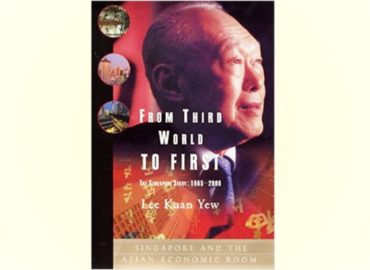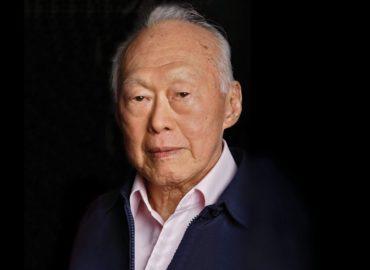INTRODUCTION
It is my great pleasure to share on my website the history of a great leader Lee Kuan Yew who was the founding Prime Minister of Singapore from 1959-1990 and under his leadership Singapore was transformed from a third world country into a first world nation.
This journey of transformation has been captured in his book “FROM THIRD WORLD TO FIRST The Singapore Story: 1965-2000″.
This book was published by HarperCollins Publishers Inc. in 2000. The foreword to the book was written by no less a personality Dr. Henry Kissinger one-time Secretary of State of the United States of America.
Few leaders have caught my attention, Lee Kuan Yew is one of them. Nation building is not for the chicken-hearted or selfish politicians styled leaders. I believe that any leader especially in developing country that wants to make a change and transform his or her nation must endeavour to read this 700- page book. It is becoming a cliché to hear “if you want to hide anything from the Black man hide it in a book” . I have decided to discuss this book on my website in order to make the information and lessons that could be learnt available to those who wish to broaden their knowledge on what it takes to build a nation and may not have the time to read this narrative book. Nigeria who got independence after Singapore, 56 years on is still grappling with poverty, diseases, ignorance in spite of its enormous human and natural resources. It is my hope that those who would follow my discourse on this book will someday find themselves in leadership position and can draw inspiration from the leadership example of Lee Kuan Yew. You cannot give what you do not have. Knowledge is power.
This book will be discussed chapter by chapter and I enjoined readers to visit the site regularly as I take my readers through the book. Happy reading .
Brief History of Lee Kuan Yew 1923-2015
Lee Kuan Yew, was born on 16 September 1923 –Died on 23 March 2015). He was the first Prime Minister of Singapore, governing it for three decades. Lee is recognized as the nation’s founding father, who piloted the affairs of the country transitioning it from the “third world to first world in a single generation” under his leadership.
Lee graduated from Cambridge University with a law degree. He practised law as a barrister until 1959. Lee went into politics and co-founded the People Action Party (PAP) in 1954 and was its first secretary-general until 1992, leading the party to eight consecutive victories. Lee became the Prime Minister in 1965 and stepped down as Prime Minister in 1990.
Lee campaigned for Britain to relinquish its colonial rule, and eventually attained through a national referendum to merge with other former British territories (Malaya, Singapore, Sabah and Sarawak) to form Malaysia in 1963. On 16 September 1963, Singapore became part of the new Federation of Malaysia.
But racial strife and ideological differences led to its separation to become a sovereign city state two years later. On 9 August 1965, the Malaysian parliament passed the required resolution that would sever Singapore’s ties to Malaysia as a state, having been literally expelled and forced to become independent state. Thus the Republic of Singapore was created.
With overwhelming parliamentary control at every election, Lee oversaw Singapore’s transformation from a relatively underdeveloped colonial outpost with no natural resources to an Asian Tiger economy. In the process, he forged a system of meritocratic, highly effective and incorrupt government and civil service.
Lee eschewed populist policies in favor of pragmatic long-term social and economic measures. With meritocracy and multiracialism as governing principles, Lee moulded the country into a prosperous nation. Lee’s rule was criticized for curtailing civil liberties (public protests, media control) and bringing libel suits against political opponents. He argued that such disciplinary measures were necessary for political stability, which together with rule of law, were essential for economic progress.
Singapore’s lack of natural resources, a water supply that was derived primarily from Malaysia and a very limited defensive capability were the major challenges which Lee and the nascent Singaporean government faced.
Despite its unusual birth—and perhaps because of it—Singapore has become enormously successful. By investing in its port, now one of the world’s busiest, the government capitalised on Singapore’s strategic location at the entrance to the Strait of Malacca. To make up for its lack of other natural resources, the country opened its doors to foreign businesses, which brought skills and riches. But Singapore’s size and location have also encouraged paranoia: the government maintains mandatory national service and until recently required bomb shelters to be built in many new homes. Civil libertarians complain that its governments have driven growth at the expense of political freedom.
On 23 March 2015, Lee Kuan Yew died of severe pneumonia, at 91. In a week of national mourning, 1.7 million residents and guests paid tribute to him at his lying-in-state at Parliament House and at community tribute sites around the island.
Culled largely from Wikipedia




